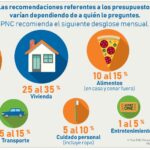Programas y apps útiles para administrar tu ahorro

Administrar el ahorro de manera efectiva ya no requiere solo disciplina, sino también las herramientas adecuadas. En la era digital, existen numerosas aplicaciones y programas diseñados para ayudar a las personas a controlar sus finanzas personales, establecer metas de ahorro y monitorear sus progresos en tiempo real.
Desde apps que categorizan gastos automáticamente hasta plataformas que invierten pequeñas cantidades de dinero por ti, las opciones son variadas y adaptables a diferentes estilos de vida. Este artículo presenta una selección de herramientas tecnológicas útiles que facilitan el ahorro, promueven la conciencia financiera y contribuyen al cumplimiento de objetivos económicos a corto y largo plazo.
Programas y apps útiles para administrar tu ahorro
En la era digital, administrar tus finanzas personales y mantener un control constante sobre tus ahorros es más sencillo gracias a una gran variedad de programas y aplicaciones diseñadas para simplificar el seguimiento del dinero. Estas herramientas permiten hacer un seguimiento automático de ingresos y gastos, establecer metas de ahorro reales, categorizar movimientos bancarios y recibir alertas cuando se sobrepasan límites presupuestarios.
Lo más valioso es que muchas de ellas sincronizan directamente con tus cuentas bancarias, ofreciendo una visión en tiempo real de tu situación financiera. Además, su interfaz amigable y accesible desde móviles o computadoras facilita la toma de decisiones conscientes, ayudándote a desarrollar hábitos financieros saludables a largo plazo.
Principales funciones de las apps de ahorro
Las aplicaciones dedicadas al ahorro personal ofrecen funciones clave que van más allá del simple registro de gastos. Permiten crear presupuestos mensuales, establecer metas de ahorro con fechas límite, realizar seguimiento automático de transacciones a través de la conexión segura con cuentas bancarias y tarjetas, y generar informes visuales como gráficas de consumo por categorías.
¡Este contenido te puede interesar! Errores comunes que afectan tu ahorro personal
Errores comunes que afectan tu ahorro personalMuchas también incluyen alertas personalizadas para evitar gastos innecesarios, detectar patrones de consumo y recomendaciones inteligentes basadas en tu historial financiero. Estas características hacen que gestionar el dinero sea más eficiente, fomentando una mayor disciplina financiera sin necesidad de complicados cálculos manuales.
| Función | Descripción |
|---|---|
| Presupuestos personalizados | Permiten asignar límites de gasto por categoría (alimentos, transporte, entretenimiento, etc.) y notifican cuando se acerca o supera el tope. |
| Metas de ahorro | Facilitan crear objetivos como vacaciones, emergencias o compra de auto, mostrando el progreso en porcentajes y tiempo estimado. |
| Sincronización bancaria | Conectan automáticamente con instituciones financieras para registrar movimientos sin necesidad de entrada manual. |
Aplicaciones populares para el control de ahorros
Existen diversas apps ampliamente reconocidas que ayudan a administrar el ahorro de manera efectiva. Entre las más populares están MoneyWiz, PocketGuard, GoodBudget y Spendee, cada una con enfoques distintos según el estilo financiero del usuario. Por ejemplo, MoneyWiz se destaca por su potente integración multi-banco y reportes detallados, mientras que PocketGuard enfatiza el ahorro automático mostrando cuánto dinero te queda disponible después de cubrir gastos fijos.
GoodBudget utiliza el método del sobre digital, ideal para quienes prefieren un enfoque basado en efectivo, y Spendee combina diseño atractivo con funciones de control familiar. Todas estas apps están disponibles en iOS y Android, muchas con versiones gratuitas y opciones de suscripción para funciones avanzadas.
Beneficios de usar tecnología para ahorrar
Utilizar programas y aplicaciones para administrar el ahorro ofrece múltiples ventajas que transforman la forma en que las personas manejan su dinero. En primer lugar, elimina el atraso en el registro de gastos, ya que muchas apps actualizan los datos en tiempo real, lo que permite tomar decisiones financieras informadas al instante. Asimismo, fomentan la transparencia financiera, revelando con claridad en qué se gasta y dónde se puede recortar.
Otra gran ventaja es la automatización del ahorro, ya que algunas apps trasladan automáticamente una cantidad predeterminada a cuentas de ahorro o fondos cuando hay excedente. Todo esto contribuye a crear conciencia sobre el comportamiento financiero y a establecer metas alcanzables, aumentando significativamente las probabilidades de lograr la estabilidad económica.
¡Este contenido te puede interesar! Técnicas comprobadas de ahorro para tu futuro
Técnicas comprobadas de ahorro para tu futuroOrganiza tu futuro financiero desde tu dispositivo móvil
Administrar tus finanzas personales de manera eficiente ya no requiere hojas de cálculo complejas ni conocimientos avanzados en contabilidad, gracias a la variedad de apps y programas diseñados para ayudarte a ahorrar, controlar gastos y cumplir metas económicas.
Estas herramientas ofrecen funciones como categorización automática de transacciones, alertas de presupuesto, seguimiento de metas de ahorro y sincronización con cuentas bancarias, lo que permite una visión clara y en tiempo real de tu situación financiera. Desde aplicaciones móviles hasta software de escritorio, cada opción se adapta a diferentes estilos de vida y necesidades, promoviendo hábitos financieros responsables y sostenibles a largo plazo.
1. Mint: Control total de tus finanzas personales
Mint es una de las apps más populares para el manejo financiero personal, ya que permite vincular cuentas bancarias, tarjetas de crédito y préstamos para ofrecer un resumen completo de tus ingresos, gastos y presupuestos mensuales.
Su interfaz intuitiva muestra gráficos claros sobre tus hábitos de gasto y te envía notificaciones personalizadas cuando te excedes del presupuesto o tienes una factura próxima a vencer. Además, Mint sugiere metas de ahorro basadas en tu historial, convirtiéndose en una herramienta ideal para quienes buscan mejorar su disciplina financiera sin complicaciones.
2. YNAB (You Need A Budget): Enfocado en el control por metas
YNAB se distingue por su enfoque proactivo: asigna cada dólar a un propósito específico, promoviendo el método del presupuesto por asignación. Esta app funciona con la filosofía de que debes darle trabajo a cada parte de tu dinero, lo que ayuda a evitar gastos innecesarios y a priorizar ahorros.
¡Este contenido te puede interesar! Beneficios reales de ahorro constante y disciplinado
Beneficios reales de ahorro constante y disciplinadoEs especialmente útil para quienes tienen dificultades para mantener un fondo de emergencia o desean salir de deudas, ya que ofrece planes detallados, seguimiento en tiempo real y talleres educativos incluidos, todo integrado en una plataforma sincronizada entre dispositivos.
3. Money Manager: Sencillez y funcionalidad sin conexión
Ideal para usuarios que prefieren mantener el control de sus finanzas sin depender de internet, Money Manager es una app móvil que permite registrar ingresos y egresos de forma sencilla y visual. Ofrece gráficos de barras y circulares para analizar el flujo de efectivo, establecer metas de ahorro y programar recordatorios de pagos. Aunque no se sincroniza automáticamente con bancos, su interfaz limpia y su bajo consumo de recursos la hacen perfecta para quienes valoran la privacidad y desean una herramienta ágil sin complicaciones técnicas.
4. GnuCash: Software libre para gestión financiera avanzada
Dirigido a usuarios más técnicos, GnuCash es un programa de código abierto que funciona en múltiples sistemas operativos y ofrece funciones similares a software contable profesional. Permite llevar un registro detallado de cuentas, inversiones, facturación y hasta impuestos, utilizando el sistema de partida doble. Aunque su curva de aprendizaje es más pronunciada, es una excelente opción para freelancers, pequeños empresarios o personas que buscan una solución gratuita y poderosa para administrar ahorros y finanzas personales con precisión.
5. PocketGuard: Simplifica tu ahorro con enfoque automatizado
PocketGuard se enfoca en mostrar cuánto dinero te queda disponible para gastar después de considerar ahorros, facturas y metas financieras, introduciendo el concepto de “lo que realmente puedes gastar”. Automáticamente clasifica tus gastos, detecta suscripciones duplicadas o innecesarias y sugiere formas de reducir costos. También incluye una función llamada "Infinite Budget" que canaliza excedentes hacia ahorros automáticos, convirtiéndola en una aliada ideal para quienes desean ahorrar sin esfuerzo y mantenerse dentro de sus posibilidades.
Preguntas frecuentes
¿Qué aplicaciones son útiles para controlar mis gastos diarios?
Aplicaciones como Mint, GnuCash y Wallet permiten registrar ingresos y egresos diarios, categorizar gastos y establecer presupuestos. Estas herramientas sincronizan datos en múltiples dispositivos y ofrecen informes visuales para entender mejor tus hábitos financieros. Son ideales para mantener un control constante y evitar gastos innecesarios, promoviendo una gestión más eficiente del ahorro personal.
¡Este contenido te puede interesar! Beneficios de revisar tu presupuesto mensualmente
Beneficios de revisar tu presupuesto mensualmente¿Cómo pueden las apps ayudarme a alcanzar metas de ahorro?
Las apps como YNAB (You Need A Budget) y Moneybox permiten definir metas específicas de ahorro, como un viaje o una emergencia. Desglosan el monto total en aportes semanales o mensuales y notifican tu progreso. Al visualizar el avance, estas herramientas motivan a mantener el compromiso financiero y facilitan ajustes según tus ingresos, ayudándote a cumplir objetivos de manera realista y organizada.
¿Existen programas gratuitos para administrar el ahorro familiar?
Sí, existen programas gratuitos como GnuCash y HomeBank que permiten gestionar el ahorro de toda la familia. Ofrecen funciones como control de presupuesto, categorización de gastos y generación de gráficos detallados. Son compatibles con múltiples plataformas y permiten registrar cuentas bancarias, inversiones y préstamos, brindando una visión clara de las finanzas familiares sin necesidad de pagar por licencias.
¿Qué ventajas tienen las apps de ahorro con inteligencia artificial?
Las apps con inteligencia artificial, como Cleo o Albert, analizan automáticamente tus hábitos financieros y ofrecen recomendaciones personalizadas. Pueden identificar gastos innecesarios, sugerir cantidades exactas para ahorrar y hasta trasladar dinero automáticamente a cuentas de ahorro. Esto simplifica la gestión, reduce errores humanos y ayuda a optimizar el ahorro sin intervención constante del usuario.
Si quieres conocer otros artículos parecidos a Programas y apps útiles para administrar tu ahorro puedes visitar la categoría Ahorro.
